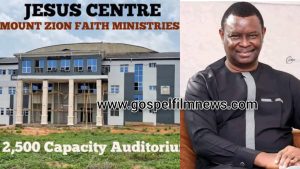Mount Zion Movies and Language Evangelism

By Ruth Anastasia
The gospel can be spread regardless of one’s native tongue. As is evident in churches that use interpreters during services, evangelists from all walks of life have the opportunity to do the same as they spread the gospel. They can do it in public, through music, through information, and unquestionably via film.

There is no doubt that the English language is not the universal language of communication, nor is it the most emotional or prominent mother tongue. On the other hand, the beauty of the world becoming a global village is represented in communication as well as in commerce and travel. The capacity to communicate, which is a means of spreading information, may therefore be enhanced by culture and people. When communication is interrupted during transmission, it loses significance, but it’s also possible that we can convey messages without interruption by using techniques that allow the recipient to understand the message in their own language directly.
Yoruba, a native language of Africa, is infused into the film “Abejoye” by Mount Zion Movies’ characters, along with native tales recited from the Bible, in which Joseph is transformed into a tortoise through Baba Abejoye’s stories to his grandchildren. Other characters also speak English in various scenes, illustrating the richness of what language can do in terms of evangelism. Evangelist Mike Bamiloye, who is recognized for being an accomplished orator, plays Baba Abejoye, a character who speaks only Yoruba. Despite this, he continues to share the gospel with everyone he encounters.

The film “Abattoir,” which Damilola Mike Bamiloye produced and directed, had one of the best blends of Pidgin English, which is gradually evolving into the entertaining, educational street language that major media outlets like BBC Pidgin have integrated into their transmission services. The film left m any people thinking about what the next word might be or mean because of the Pidgin English vocabulary. The simple truth that the gospel can be spoken in such languages and it wouldn’t matter if all the performer already had a different mother tongue is interesting, as the pidgin English which is generally understood on the street and by the intellectual business man was to many another way of reaching out to men and women without tertiary education and otherwise.
The series was made a lot more entertaining by Sister Flora’s portrayal of herself as a street girl using Pidgin English. She demonstrated it whenever she interacted with people in general, not just while she was on the street trying to find a customer. When she changed her beliefs and gave her her life to God, she continued to express herself through that language, telling her sister, “I have first class power, me and the holy spirit, our parole don tight,” implying that her connection to the holy spirit gives her authority. An intriguing style of art that was used for evangelism.

Rupantar, which in Hindi means “The Change Over,” is yet another new language that the Mount Zion ministry has conquered through film. Working together with Shiloh Global Ministries Inc., they are able to reach new audiences through this method. One that unites international audience to appreciate the gospel in a different language; its subtitling made it simple for the Mount Zion English audience to participate in the gospel through Indian songs and prayer, bible recitation and so on; it also introduces their audience to the possibility of appreciating cultures that may seem the same but differ in word pronunciation.
Now, they are able to reach the Indian and English speakers; what a mile stone.
Apostle Paul could speak Roman, Hebrew(languages which helped him escape death); though his highest language remains that of speaking in tongues- a language which is known as the language of the Holy Spirit. Paul had a skill that many other disciples did not, and it helped him in his mission to impart the essence of Christ to as many people as possible.

When several languages are incorporated into a piece of art, it takes on new importance for both the audience and the creator. It opens up a diverse range of imaginations for the audience and makes the creator more acceptable to a bigger audience. Language fusion gives rise to a variety of viewers, much like a radio drama can open the sensitivity of a blind listener.
“Are we using our tongues, and the language(s) that we know, to tell forth the news that ‘Christ died for our sins according to the scriptures; And that he was buried, and that he rose again the third day according to the scriptures” (I Corinthians 15:3,4)?




